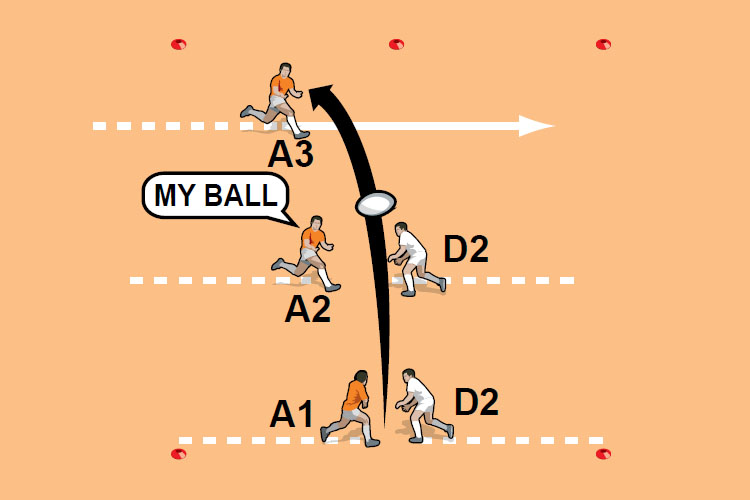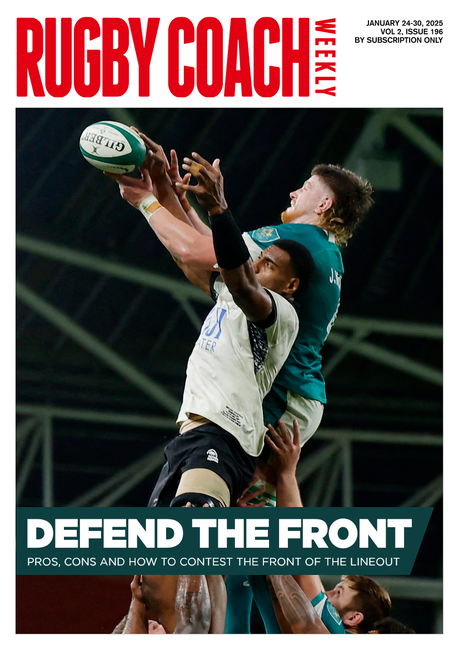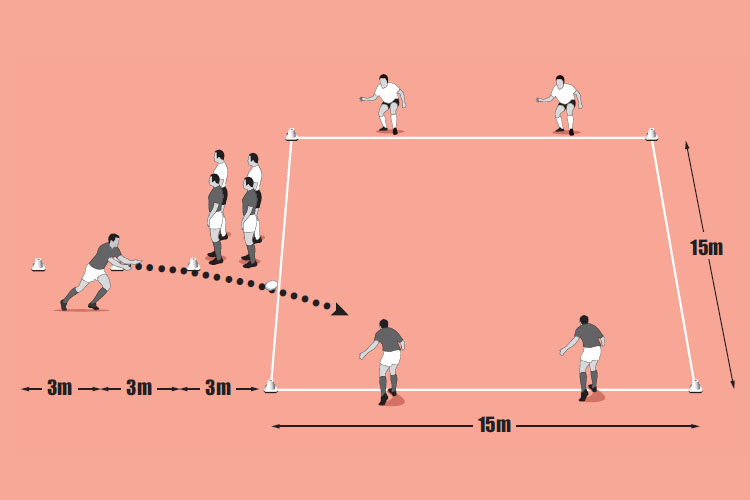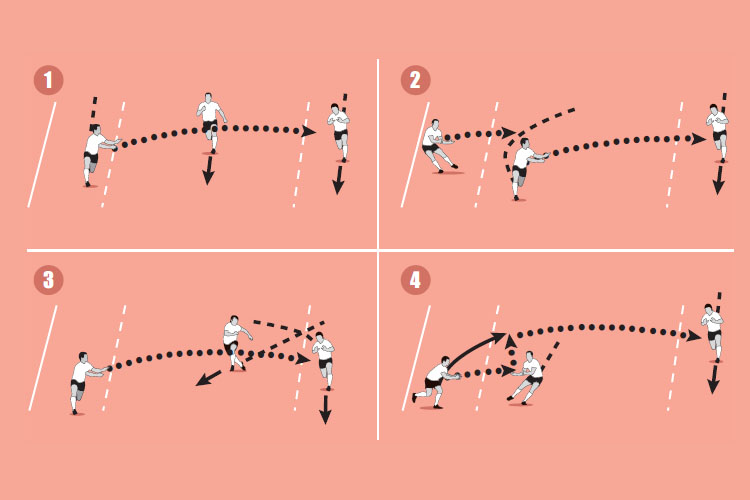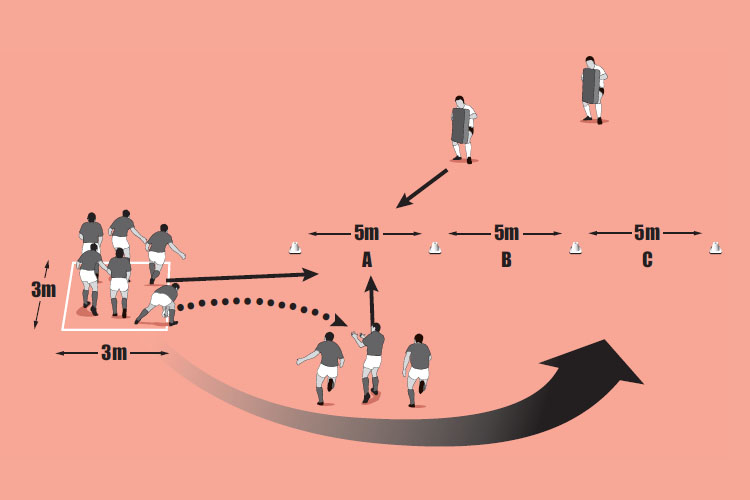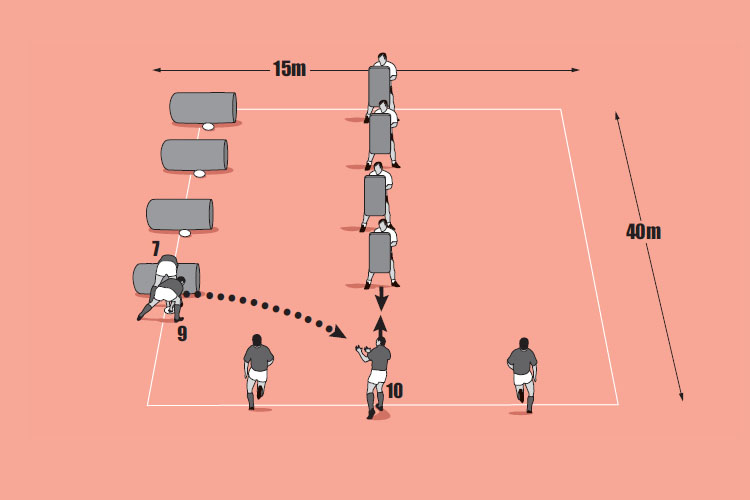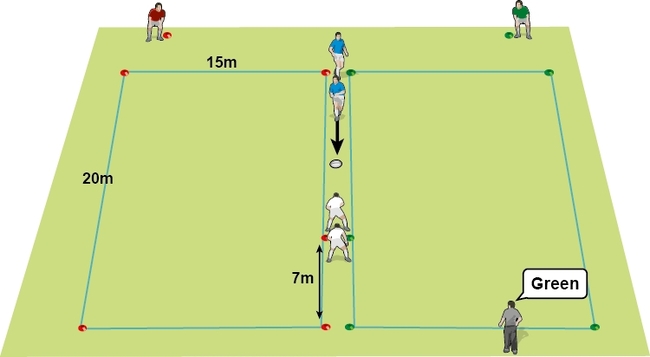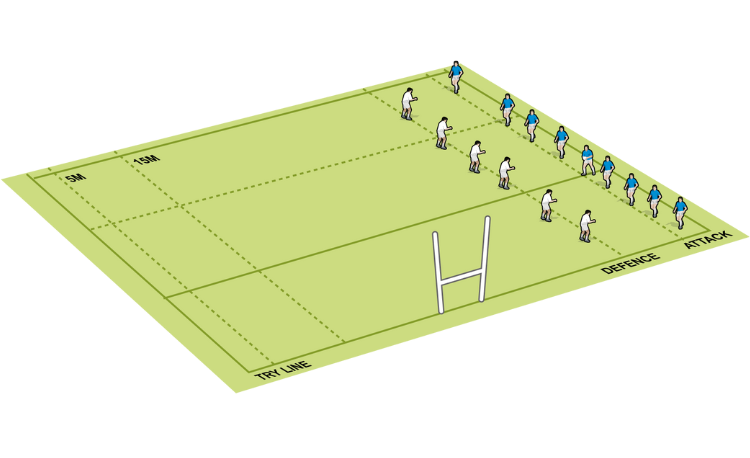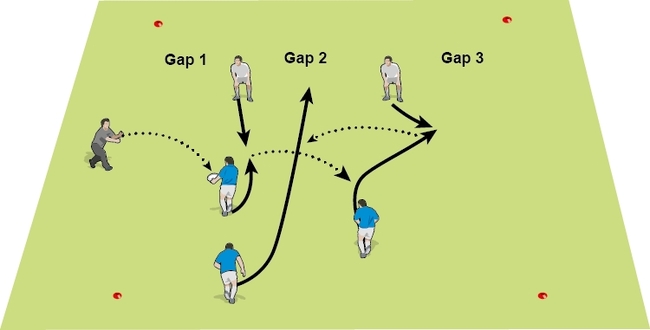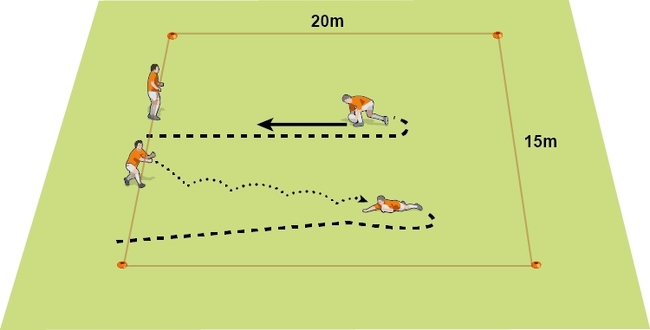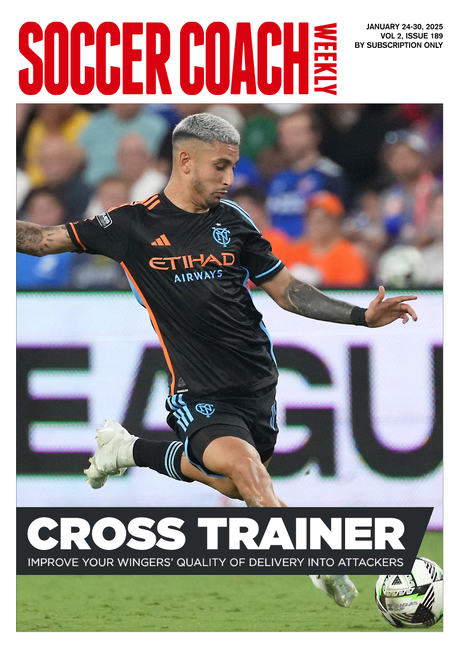Miss me
The miss pass is the most commonly misused pass in rugby. When executed at the right time it can release attackers, but too often it simply allows defenders to drift out and push the attack towards touch. “Miss me” will develop your players’ understanding of when to use a miss pass.
Warm up time: 7-10
Session time: 8-10
Development time: 8-10
Game time: 15-20
Warm down time: 7-10
What to think about
Focus with your players on when to use the miss pass as much as how to execute it. So, unless you are specifically developing the passing technique, always train with defenders in front of the players to encourage them to make decisions. All too often a miss pass is called and run despite the defender having drifted out to cover. However, if players are constantly scanning the defence and communicating with each other they can react to the defenders’ movements. So, the keys to the miss pass is scan the defence, make the decision, and communicate the decision.set-up
- Deliver the miss pass when you are close to the defenders.
- Pass the ball in front of the receiver so he can accelerate on to it.
- Make accurate decisions about when to miss pass based on the defenders’ actions.
What you get your players to do
Start with three attackers (A1, A2, A3) running through the area practising miss passes. Then add two defenders (D1, D2) starting 10 metres away. D1 runs at the ball carrier (A1). A1 has to fix D1 before passing. D2 runs at A2 (the middle player), leaving A3 free to receive the miss pass. Gradually build up the speed of the defenders to increase the pressure on the passer. Insist on accurate passes in front of the receiver.Development
- Allow D2 to decide which attacker to target. A2 must now make the decision about where the ball goes and communicate it to the ball carrier.
- Allow D1 to drift across if the pass is given too early. This checks the timing of the pass is accurate.
Related Files
Game situation
Have eight attackers starting from the 22m line, playing against four defenders, defending from the try line. The attackers are only allowed one phase per attack. To score a try there must be at least one miss pass in the move. Add a defender each time a try is scored (up to eight). See which team can get the longest try scoring sequence. Use two-handed touch tackling or full tackling.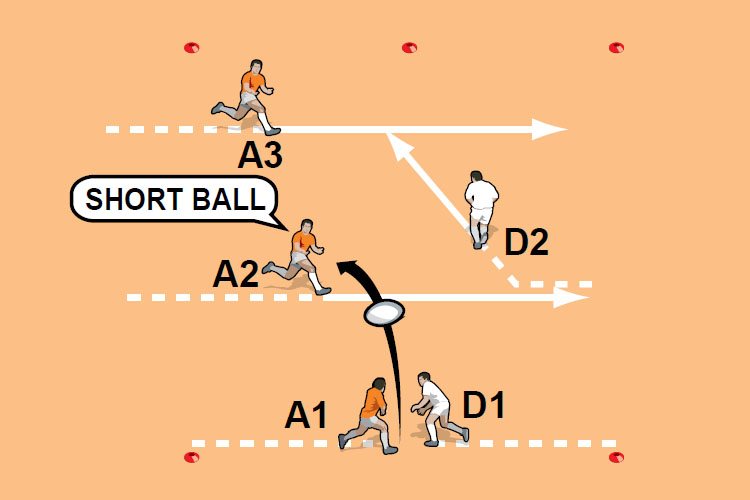
What to call out
- Ball carrier: “Follow through to the target”
- Ball carrier: “Scan the defence before passing”
- Ball carrier: “Pass as close to the defender as you dare”
- Middle attacker: “Shout for the ball to fix the defender”
Newsletter Sign Up
Coaches Testimonials

Gerald Kearney, Downtown Las Vegas Soccer Club

Paul Butler, Florida, USA

Rick Shields, Springboro, USA

Tony Green, Pierrefonds Titans, Quebec, Canada
Subscribe Today
Be a more effective, more successful rugby coach
In a recent survey 89% of subscribers said Rugby Coach Weekly makes them more confident, 91% said Rugby Coach Weekly makes them a more effective coach and 93% said Rugby Coach Weekly makes them more inspired.
Get Weekly Inspiration
All the latest techniques and approaches
Rugby Coach Weekly offers proven and easy to use rugby drills, coaching sessions, practice plans, small-sided games, warm-ups, training tips and advice.
We've been at the cutting edge of rugby coaching since we launched in 2005, creating resources for the grassroots youth coach, following best practice from around the world and insights from the professional game.

